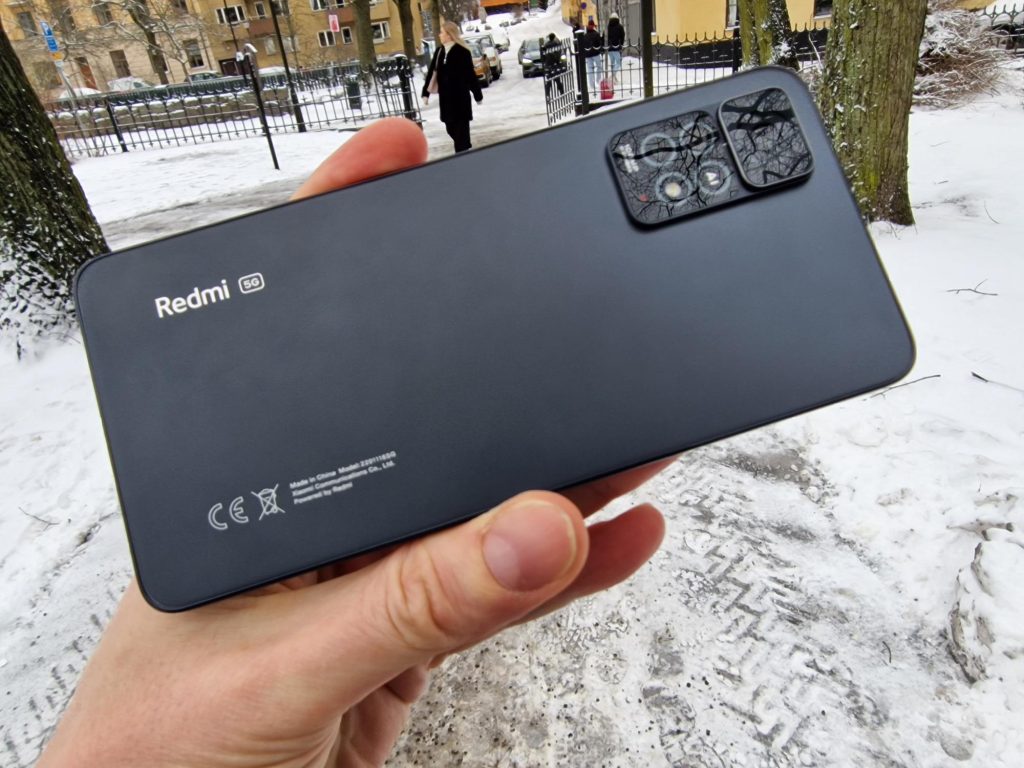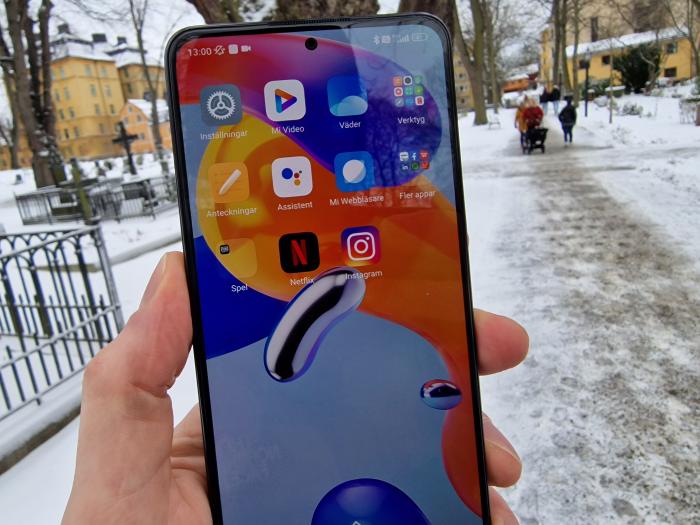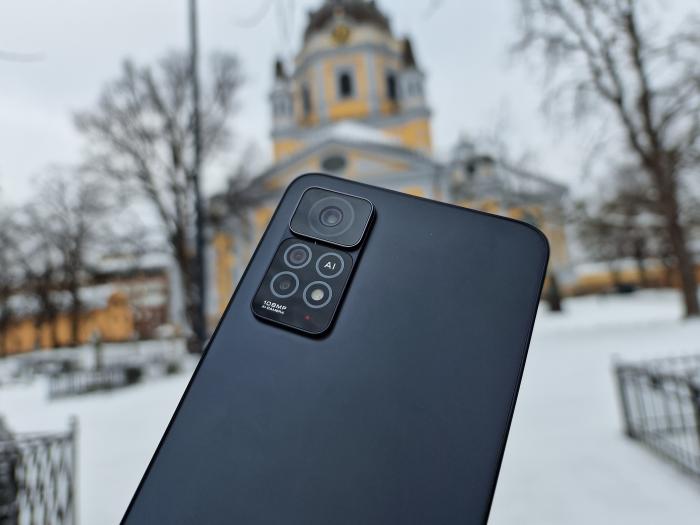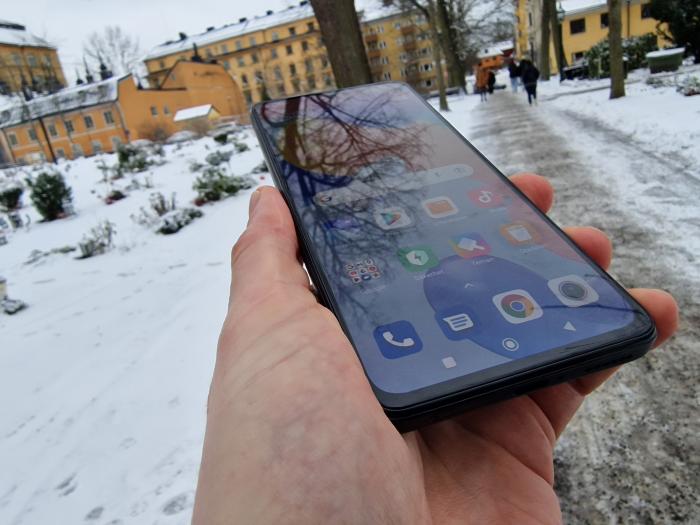It’s sometimes easy to forget how far mobile development has progressed. This phone is a clear example of that. The truth is, it wasn’t that long ago that an OLED display with a 120Hz refresh rate and 108MP camera was something of a favorite of the absolute flagship. 120 Hz screens ranked first in premium gaming phones with high performance, and 108 megapixels came in for the best camera phones. So there were a select few who had both features and now these features are available in a phone that costs 4000 SEK. In recent years, each year’s version of flagship mobile phones may not have offered revolutionary specifications. However, what has happened and is happening at a faster pace is that the features of the flagship are seeping into the cheaper phones. This allows you to get cheaper phones with fewer and fewer compromises.
I think Xiaomi in the Redmi Note 11 Pro manages to include most of the important things and thus makes sure to prioritize the right things. Most users today may not need a flagship phone but many of us can do a great job with a cheaper phone. Especially if it not only offers the basics like a good screen, battery, and cameras, but also offers a few extra features in some areas.
Many but not all
The clearest development in mobile phones in the past year and years is fast charging and before that we saw major developments in cameras with dark images and super zoom. On the Redmi Note 11 Pro, Xiaomi takes some of these innovations, but prioritizes others. For example, we don’t get wireless charging, we lack water resistance and for the life of the phone it’s a bit unfortunate that the screen has Gorilla Glass 5 protective and not the latest, more durable version. At the same time, it is, of course, clearly understandable, because somewhere Xiaomi has to save it. You simply have to be careful not to drop the phone on the floor.
I initially mentioned that 120Hz refresh rate screens made their first entry in high-performance premium gaming phones, but that’s not the Redmi Note 11 Pro. It might be unfair to compare this phone directly to a flagship mobile of the latest version, which costs three times more, but it also shows what is prioritized and what is unchecked.
good middle class
If you browse through the browser or menus on the phone, you first of all notice the difference if you set the screen to 120Hz or 60Hz on the Redmi Note 11 Pro. These are the two options available, and faster selection makes screen movements smoother and more comfortable. At the same time, I notice a clear difference when I compare it to a more expensive flagship. This applies not only to the screen but also to the overall performance. Xiaomi Redmi Note 11 Pro has a good mid-range performance, which makes it feel functional and fast in many situations but not in the most demanding ones. It’s fast but not fast and you might notice some lag when switching between apps or doing more demanding things. A good phone for most but not all.
Apparently some of the phone’s features put it in the cabin below the flagships when it could actually be a feature. The fingerprint sensor is located, for example, in a physical button on the side, something that often works better and more practical than having a sensor built into the screen, as is the case on many flagships. Moreover, the phone as a whole makes a sober impression and I came to the conclusion, after carefully examining the back, that it is made of frosted glass and not plastic. It simply feels luxurious. The rear camera assembly consists of three cameras and features a design that gives the phone a somewhat unique feel.
108 and more
If we take a closer look at the cameras, they are, as I said, a 108-megapixel main camera and complemented by two other cameras, an 8-megapixel wide-angle and a macro lens. In the rear camera module there is room for another lens, but there is no camera but AI text. With the camera’s AI mode activated, I quickly noticed that it was identifying different subjects. Food, snow, person, and sky are some of the shapes you select and settings adjust to, but photos in the snow make the snow a little blue and food photos get too saturated, so I quickly turn off the AI mode. In general, regardless of the motivation, it seems to increase the saturation of the color, so I don’t think it adds much.
With the AI turned off, I continue to evaluate the camera anyway. There’s no optical zoom, but with a 108MP main sensor, the camera app allows me to zoom in up to 10 times and I think photos at least up to about five times would be useful. The wide angle also works satisfactorily, but only with the main camera do you have a night mode, and even there photos get poor quality and more noise once they get a little darker. Dusk or low light works well, if it’s dark you may have problems taking good photos. So far the main camera and the wide angle. The macro camera adds almost no value, so you can take perfectly close photos with the standard camera and a small zoom.
The camera app itself gives me good chances, with both functionality and opportunities to customize it. You can take 108MP photos, but by default you get 12MP photos with better quality. The camera app has common functions like portrait mode and panorama and you can choose which one should be available directly in the interface and which one should be scrolled to the More tab and thus are just a click away.
Not the latest Android version
The interface of Xiaomi as a whole is somewhat different from other Android devices. The phone first comes with Android 11, so it wasn’t the last version that came out last fall. At the top of Android is Xiaomi’s MIUI 13 interface, and you’ll probably notice more than the Android version below the surface. You can choose if you want all installed apps to end right on the home screen or if you want a separate clap. Xiaomi comes with a lot of apps, in addition to the standard. Shopping apps from Aliexpress, Amazon, Linkedin, WPS Office as well as a number of private apps for file sharing, dictation, music, video, and a private browser, in addition to those that Google included at the time. However, these apps are easy to uninstall if you think they are unnecessary, so it’s not a huge drawback.
questions and answers
How about the battery capacity?
It’s extraordinarily good, because the generous 5,000mAh battery capacity is combined with 67W fast charging so you can charge the battery from 0 to 50 percent in just 15 minutes. The required express browser is included for this.
Does it have 5G and do I need 5G?
Today, expansion hasn’t come yet to have coverage in many places in Sweden, but in a couple of years 5G could definitely be useful, so it makes the phone more adaptable for the future.
No water protection at all?
Well, you shouldn’t swim with it, but it’s IP53 protected, so splashes shouldn’t be a problem.
alternative:
Similar strength
You also get a good screen and fast charging in the new Oneplus Norde CE2, which also costs about the same amount..
test picture
Outdoor and well-lit subjects are okay, but when they get darker or in wide-angle mode, the camera becomes more difficult.

“Entrepreneur. Freelance introvert. Creator. Passionate reader. Certified beer ninja. Food nerd.”














More Stories
Logitech Steering Wheel News: New Steering Wheels, Gear Lever, and Handbrake in Direct Drive Series
Garmin Launches inReach Messenger Plus App
Why Rare Earth Metals for Electric Cars Are Crucial for Modern Mobility